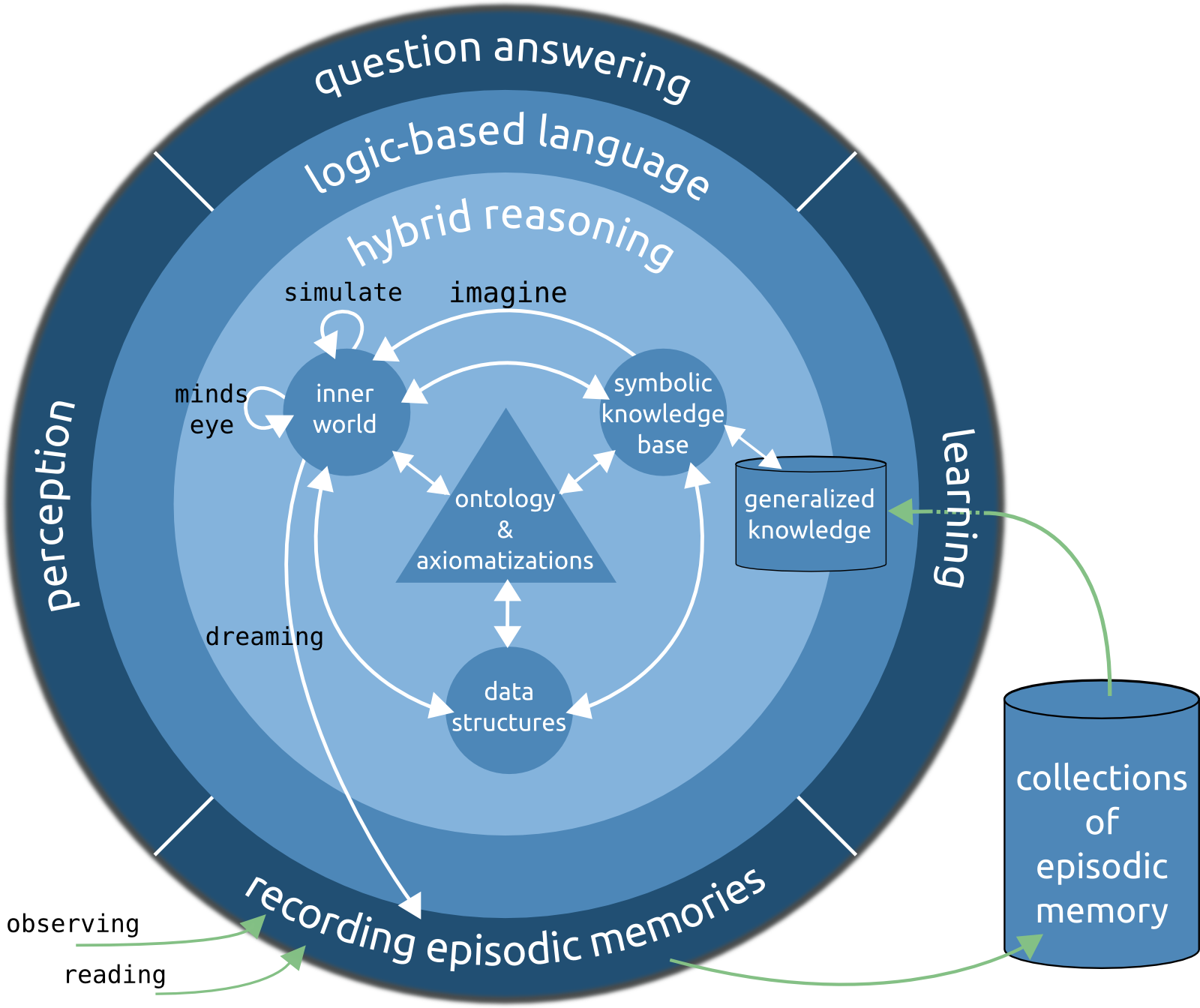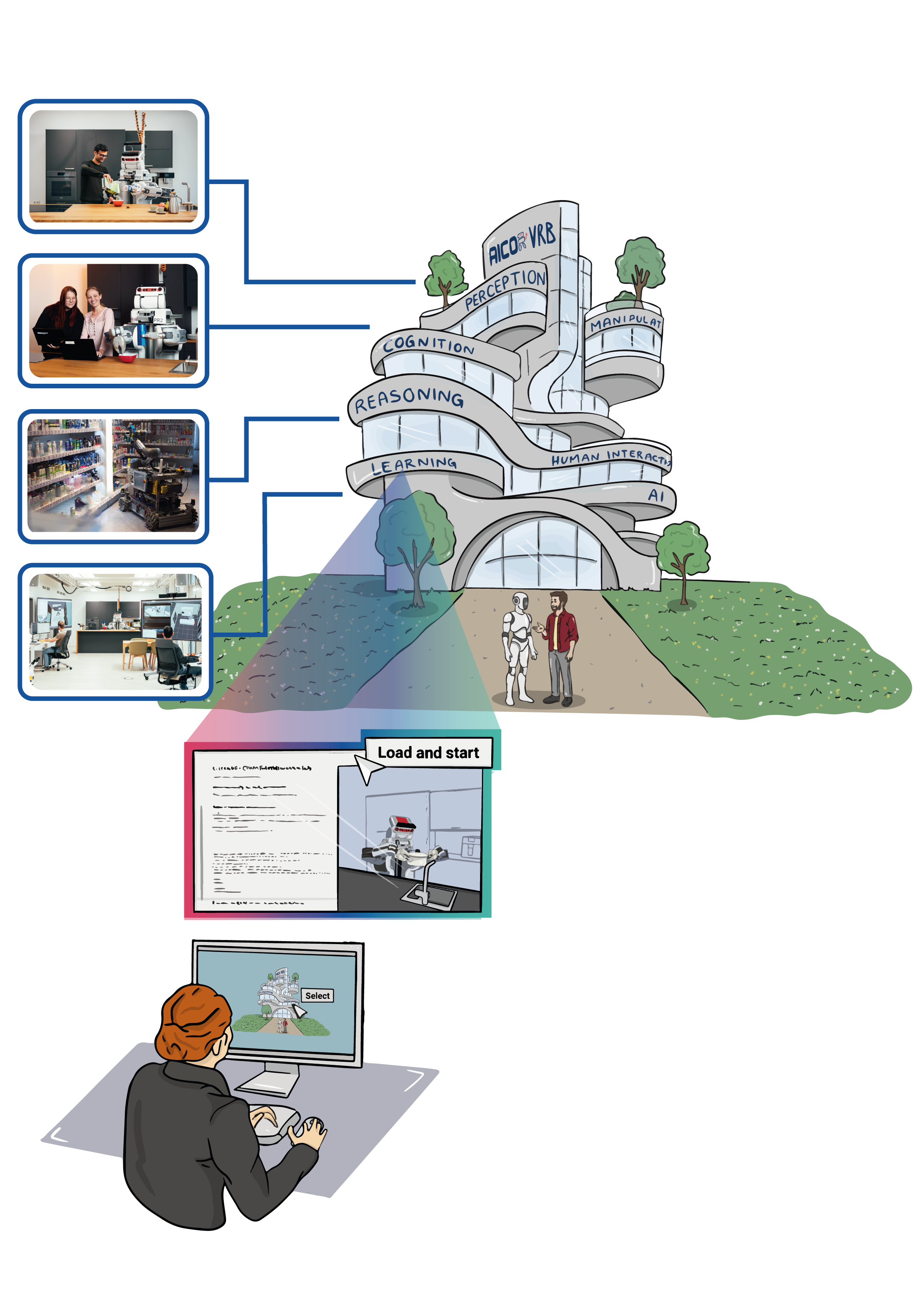Page Not Found
Page not found. Your pixels are in another canvas.
A list of all the posts and pages found on the site. For you robots out there is an XML version available for digesting as well.
Page not found. Your pixels are in another canvas.
About me
This is a page not in th emain menu
Published:
This post will show up by default. To disable scheduling of future posts, edit config.yml and set future: false.
Published:
This is a sample blog post. Lorem ipsum I can’t remember the rest of lorem ipsum and don’t have an internet connection right now. Testing testing testing this blog post. Blog posts are cool.
Published:
Published:
KnowRob is a knowledge processing system that combines knowledge representation and reasoning methods with techniques for acquiring knowledge and for grounding the knowledge in a physical system
Published:
openEASE is a web-based knowledge service providing robot and human activity data 
Published:
Virtual Research Building (VRB) is an innovative digital ecosystem designed to revolutionize the field of AI-powered and cognition-enabled robotics.
Published in In Proc. 31st DL, vol. 2211 of CEUR, 2018
We revisit the technique for partitioning ontologies using E-connections introduced by Cuenca Grau et al. (2006).
Recommended citation: S. Jongebloed and T. Schneider: Ontology Partitioning Using E-Connections Revisited. In Proc. 31st DL, vol. 2211 of CEUR, 2018.
Published in arXiv preprint arXiv:2110.01284., 2021
We propose a new database querying language called Mongolog which is syntactically a subset of the Prolog language, and we define its operational semantics through translations into MongoDB aggregation pipelines.
Recommended citation: Beßler, D., Jongebloed, S., & Beetz, M. (2021). Prolog as a Querying Language for MongoDB. arXiv preprint arXiv:2110.01284.
Published in RobOntics workshop 2023, 2023
In this work, we thus investigate a formal model of preferences where options are non-atomic entities that are defined by the complex situations they bring about
Recommended citation: Mona Abdel-Keream, Daniel Beßler, Ayden Janssen, Sascha Jongebloed, Robin Nolte, Mihai Pomarlan and Robert Porzel, "An Ontological Model of User Preferences", In RobOntics workshop, 2023.
Published in IEEE Global Engineering Education Conference (EDUCON) 2024, 2024
The paper presents a novel cloud-based digital twin learning platform for teaching and training concepts of cognitive robotics.
Recommended citation: Niedzwiecki, A., Jongebloed, S., Zhan, Y., Kümpel, M., Syrbe, J., Beetz, M., "Cloud-based Digital Twin for Cognitive Robotics", In IEEE Global Engineering Education Conference (EDUCON) 2024, 2024.
Published in arXiv preprint, 2025
We systematically review how computational metacognitive architectures represent and process their episodic experiences, revealing key patterns and challenges in the field.
Recommended citation: Nolte, R., Pomarlan, M., Janssen, A., Beßler, D., Javanmardi, K., Jongebloed, S., Porzel, R., Bateman, J., Beetz, M., & Malaka, R. (2025). 'How Metacognitive Architectures Remember Their Own Thoughts: A Systematic Review.' arXiv:2503.13467.
Published in IEEE International Conference on Robotics and Automation (ICRA), 2025, 2025
We present a unified scene graph model that standardizes 3D scene formats and integrates them with robot ontologies to support actionable knowledge creation.
Recommended citation: Nguyen, G., Pomarlan, M., Jongebloed, S., Leusmann, N., Beetz, M. 'Generating Actionable Robot Knowledge Bases by Combining 3D Scene Graphs with Robot Ontologies.' In IEEE International Conference on Robotics and Automation (ICRA), 2025. Accepted.
Published:
The euROBIN is a european Network of Excellence in robotics. During the euROBIN week in Sevilla, I gave a tutorial on implementing knowledge representation and reasoning in cognitive robotics..
Published:
At the IROS 2023 in Detroit, I conducted a tutorial on implementing knowledge representation and reasoning in cognitive robotics. This session, part of a broader teaching module, demonstrated how to develop AI systems that can autonomously perform complex tasks by deconstructing the robot control system. Utilizing Jupyter Notebooks within a Docker environment for accessibility, the tutorial covered the integration of knowledge representation, planning, and simulation, providing a holistic learning experience in cognitive-enabled robotics.
Published:
The University of Bremen’s Institute for Artificial Intelligence (IAI) presented an innovative Virtual Research Building (VRB) for AI-powered and cognition-supported robotics. The VRB integrates resources for the entire research and innovation pipeline, offering comprehensive access to software components, CRAM architecture, and interactive learning materials. It supports dynamic collaboration and open-source contributions through virtual labs and promotes industry partnerships. The VRB aims to enhance the development of deployable robotic agents, providing a sustainable framework for continuous innovation in robotics.
Tutor, University of Bremen, Winter 2015
The course Practical Computer Science 1 deals with the foundations of imperative programming and object orientation. Further details (in german) can be found in the module handbook of the computer science program of the University of Bremen.
Tutor, University of Bremen, Summer 2016
The course Practical Computer Science 2 covers fundamental algorithms (e.g. search and sort algorithms) and data structures (e.g. maps). Further details (in german) can be found in the module handbook of the computer science program of the University of Bremen.
Tutor, University of Bremen, Winter 2016
The course Theoretical Computer Science 1 deals with the fundamentals of automata theory and formal languages. Further details (in german) can be found on the corresponding website.
Tutor, University of Bremen, Summer 2017
The course Theoretical Computer Science 2 deals with the fundamentals of computability and complexity. Further details (in german) can be found on the corresponding website.
Tutor, University of Bremen, Winter 2020
The Master Project SUTURO, running from Winterterm 2020/2021 to Summerterm 2021, aimed to develop intelligent robot systems capable of performing everyday tasks like tidying up rooms. The project focused on enhancing robots’ perceptual, control, and behavioral abilities through knowledge-based approaches. Further details (in german) can be found on the corresponding website.
Seminar, University of Bremen, Summer 2021
The seminar “AI-based robot control” prepares students for the Bachelor Project “SUTURO” at the University of Bremen. The seminar gives the students a first theoretical and practical insight into the foundations of ai-based robot control. In the seminar I gave lectures and tutorials about knowledge representation and reasoning for robots. Further details (in german) can be found on the corresponding website.
Tutor, University of Bremen, Winter 2021
The Bachelor Project SUTURO, running from Winterterm 2021/2022 to Summerterm 2022, aimed to develop intelligent robot systems capable of performing everyday tasks like tidying up rooms. The project focused on enhancing robots’ perceptual, control, and behavioral abilities through knowledge-based approaches. Further details (in german) can be found on the corresponding website.
Tutor, University of Bremen, Winter 2022
The Master Project SUTURO, running from Winterterm 2022/2023 to Summerterm 2023, aimed to develop intelligent robot systems capable of performing everyday tasks like tidying up rooms. The project focused on enhancing robots’ perceptual, control, and behavioral abilities through knowledge-based approaches. The aim of the project was to participate at the RoboCup@Home. Further details (in german) can be found on the corresponding website.
Seminar, University of Bremen, Summer 2023
The seminar “AI-based robot control” prepares students for the Bachelor Project “SUTURO” at the University of Bremen. The seminar gives the students a first theoretical and practical insight into the foundations of ai-based robot control. In the seminar I gave lectures and tutorials about knowledge representation and reasoning for robots.
Tutor, University of Bremen, Winter 2023
The Bachelor Project SUTURO, running from Winterterm 2023/2024 to Summerterm 2024, aimed to develop intelligent robot systems capable of performing everyday tasks like tidying up rooms. The project focused on enhancing robots’ perceptual, control, and behavioral abilities through knowledge-based approaches. The aim of the project was to participate at the RoboCup@Home. Further details (in german) can be found on the corresponding website.
Seminar, University of Bremen, Summer 2024
The course “Fundamentals of Artificial Intelligence” gives an overview of important fields and methods of artificial intelligence. The course gives the students a first insight into the foundations of AI based on the textbook by Russell and Norvig. In the course, I gave tutorials about basic AI methods like search and logic.
Tutor, University of Bremen, Winter 2024
The Master Project SUTURO, running from Winterterm 2024/2025 to Summerterm 2025, aimed to develop intelligent robot systems capable of performing everyday tasks like tidying up rooms. The project focused on enhancing robots’ perceptual, control, and behavioral abilities through knowledge-based approaches. The aim of the project was to participate at the RoboCup@Home. Further details (in german) can be found on the corresponding website.
Seminar, University of Bremen, Summer 2025
The seminar “AI-based robot control” prepares students for the Bachelor Project “SUTURO” at the University of Bremen. The seminar gives the students a first theoretical and practical insight into the foundations of ai-based robot control. In the seminar I gave lectures and tutorials about knowledge representation and reasoning for robots.